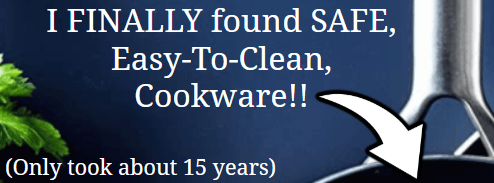The Potassium Pickle
Summation
-Potassium requirements may be huge?
-Finding “natural” potassium is a pickle
-Unusual benefits reported
-The source I decided on
-The conspiracy theory
Ever look at the Recommended Daily Amount (RDA) of potassium we’re supposed to be getting?
It doesn’t seem to exist.
“Suggestions” as to how much, yes, but no definitive “recommended daily” amount.
I cover in my content how I feel about the daily recommended allowances of nutrients, both how it can seemingly read as a bare-minimum suggestion for survival, versus how much would a person really need who may have health challenges or an unusual lifestyle, such as a high-intensity athlete; for example, the magnesium requirements for an athlete will be well above that of the person living a sedentary lifestyle.
If you’ve been in this alternative health realm with me for any amount of time, you’ve surely noticed that the amount of potassium we are supposedly supposed to be getting is…well…really high…in comparison to what our foods seem to contain in comparison.
Being a big fan of supplementation, and specifically whole food supplements whenever possible, the mineral spectrum is always the challenge when it comes to getting minerals in my body in the most natural way.
There’s a few food-based supps that claim to be multi-spectrum minerals…and I even take them at times…but I’ve never really been fully convinced.
In comparison, I use magnesium supplements regularly. My go-to mag supps have always been either the glycinate or an ionic variety, hoping in the former case that it’s more of a therapeutic use that my body does benefit from, and in the latter case that it’s hopefully more of a natural version (from sea sources) that my body will even more readily recognize.
I do get results from both, and have from other forms of mag as well, such as the citrate.
And I haven’t yet encountered any negative effects, or potential imbalances, from taking these kinds of mineral supplements. But I’ve also done enough research to avoid certain mineral supps such as calcium, due to what I consider to be a massive over-calcification condition occurring in western society; a calcification that likely produces kidney stones, joint issues and arterial plague problems.
But it’s the potassium that I still haven’t found an ideal answer for, in light of how much we seem to need.
It’s speculated, and I agree with the speculation, that we’re not getting enough due to depleted and over-used soils via industrial agriculture.
That has always been the explanation for mag deficiency as well, and I’ve proven to myself that I’ve long been mag deficient until I started supplementing with it. The difference was dramatic between not supplementing and post-supplementing, more info on that can be found elsewhere in my content. I consider it one of my most important supps.
People are making grand claims about what potassium supplementation is doing for them. Basically, just as dramatic results as the magnesium.
Leg cramping has always been a biggie. Both mag and potassium can work wonders for night cramps, and I know someone who uses a prescription form of potassium for just that, and it seems to work.
But there is almost as long a list of other benefits for potassium as well, including some completely unexpected benefits when you read the Amazon product reviews.
It’s been enough to make me wonder if it’s a missing piece of the puzzle to countless peoples’ health issues. Not a reach, considering my research and experience shows that almost every problem I and others have comes down to either nutrient deficiency, pathogens, toxicity, or a combination of any or all of those components.
So I decided to use a potassium option that comes from as natural source I could find, while having a reasonable sized dose per serving. You can find this in my “Store” tab at the top of each page.
I do not use it every day, but will use it as I feel needed to up my levels based mostly on energy levels and muscle contracting strength and/or cramping.
I’m not yet comfortable with the other options, as my research suggests we have to be a careful with potassium supplementation, and we certainly have to if we have heart-related or kidney health conditions, and there’s some evidence excessive supplementation may affect stomach lining, especially depending on the source of potassium. It isn’t excreted the same way magnesium is; with magnesium, if we get too much, we’ll know it quickly on the toilet, and there seems to be no other negative effects, at least for me.
I will chime in on potassium over time as I continue to look for the best source. This challenge will always be compounded by the laws in place regarding maximum amounts of potassium allowed; currently, the law doesn’t allow more than 100mg of supplemental potassium chloride per serving.
Then the question becomes “why” only this much, and then “is the chloride the best bio-available source?”
I could get conspiratorial on that easily. And I do.
But instead of elaborating on that, I’ll instead offer a corresponding theory regarding vitamin D: a researcher out there claims that the numerical value assigned to the daily minimum recommended amount of vitamin D, I believe back in the 1950’s, was changed to make the *number value* appear much larger, on purpose; theory being that if the number looked large…say 5,000 “iu’s” as compared to our potassium example above of 100mg’s… people wouldn’t take as much as they really need.
That person experiments with mega-dosing of D, and teaches others to do so, and claims that extraordinary healings happen as a result, including resolution of auto-immune diseases as one example.
I personally would never try that. But, I’ve always remembered that story in my years of research. And I thought of it immediately when I saw the daily recommended amounts suggested for the potassium. My endless distrust of the system however tells me this is one of the areas they get right…they have to get some of it right or they look incompetent…and funny enough, it’s a huge burden trying eat enough food to get near that daily amount suggested.
Which is another reason why I offer the type of juicers in the Store as well; many high-potassium foods are also low sugar foods, and present a great food-based option to get the daily potassium we may need.












